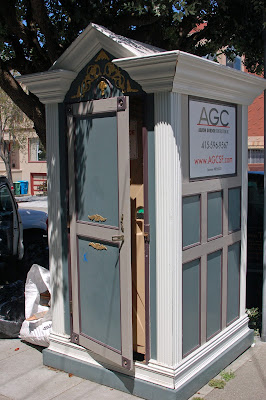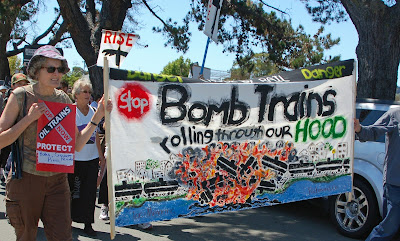On November 13, 2001, President George W. Bush casually signed off on a scheme coming out of Vice President Dick Cheney's orbit within the administration to create "military commissions" to judge and punish captured prisoners associated with al-Qaeda. No more Geneva Conventions or even trials within the federal judicial system for men labelled terrorists!
Administration legal hacks -- John Yoo, Alberto Gonzales, William "Jim" Haynes -- cobbled together an executive order that created a facade of legality for novel pseudo-courts charged with inventing rules and procedures to free our government from obligations to either national or international law. Their incurious Chief went along.In one early draft, the secretary of defense would select all the participants -- the members of the commission, the prosecutor, and the defense attorney -- and then would decide any appeals.
And so this sad, unnecessary, and cruel train of malfeasance and incompetence was set in motion. Bravin's book follows Lt. Col. Stu Couch, a well-meaning Marine Corps Judge Advocate General officer, who stumbled from obstacle to obstacle trying to make this jerry-rigged edifice function. It's a tale of bureaucratic futility and of Couch's growing awareness that he was struggling to go through legal motions in a context where no approximation of the law he believed was his profession was respected.
Nearly every case he was ordered to prosecute led back to a tortured defendant. His first visit to Guantanamo was revelatory.
Being a ethical officer and a competent attorney, Couch was horrified -- and immediately aware he was not going to be able to press charges against men who had been subjected to such treatment.Couch trusted President Bush and the chain of command. To him, criticism from liberal activists, European governments, and the news media was suspect. ... Prisoner mistreatment was a possibility in any jail, but Couch assumed that any abuse was an aberration. ...
Still, Couch was concerned because nearly all prosecution evidence came from detainee statements -- or rather, summaries of detainee statements, paraphrased by an interrogator and edited by higher-ups. These were hearsay, and inadmissible in federal court ... But since the reports were "probative" -- the only evidentiary requirement of Bush's military order -- they were not automatically barred from the commissions. For that matter, the rules did not prohibit use of statements taken through coercion or even torture.
Yet defense attorneys were certain to challenge interrogation summaries as unreliable and unfair. To respond, Couch felt he needed to know everything about a criminal investigation .... [So he finagled a visit to one of his target defendants at Guantanamo.]
An Air Force reservist serving as base escort brought Couch to the interrogation control room to watch the [Ahmed] al-Darbi session by video feed. Awaiting Darbi's arrival, Couch was startled by an unlikely sound: blasting heavy-metal music. ... On the floor [of a nearby interrogation room] amid flashing lights and the deafening metal sounds, was a shackled detainee, kneeling , mumbling, rocking back and forth. Praying. This man was in agony...
There were other difficulties. A British Muslim named Moazzan Begg had been picked up in Pakistan and imprisoned at Guantanamo. British Prime Minister Tony Blair was getting heat at home about this guy; if he was a terrorist, why wasn't he being tried? The Bush administration wanted charges against Begg and the job was given to deputy chief prosecutor Navy Commander Scott Lang.
That was in 2002. Three years later, Couch was given an Australian defendant named Mahdouh Habib to prosecute, again under pressure from the man's home country. He found that nothing had changed.Reviewing Begg's file, Lang had a question: "What's the crime?"
Figure it out, [acting chief prosecutor Marine Lt. Col. Bill] Lietzau said.
This was not an easy task, because no crimes yet had been defined for military commissions. Lang was confronted with the inverse of a regular criminal case. Police and prosecutors normally began with a crime report and then tried to find the likely suspects. At military commissions, however, "they gave you the criminals and said, 'Go find crimes that might fit these criminals,'" Lang said.
He never got that CIA file, though eventually it came out that Habib had been rendered for torture to Egypt and had told wild tales under duress that he later denied. There was no other evidence. The case had to be dropped.He had a defendant. Now he needed a crime. Despite countless hours sifting through the dossier, he couldn't find one. Habib came across as obnoxious and untruthful, but his contradictory and uncorroborated statements added up to nothing approaching a war crime. He needed to see what the intelligence community had on Habib ...
Subsequently, Couch was given the case of the alleged mastermind of the 9/11 attacks, Khalid Sheik Mohammed, to prosecute. But again, he was denied access to the intelligence files on his target.
Not surprisingly, Couch began to feel left out on a limb by his bosses. Eventually the habeas case of Salim Hamdan was argued before the Supreme Court. Couch reported his feelings....the administration concluded that holding Mohammed accountable for 9/11 was less important than concealing the circumstances of his CIA interrogations.
Not long after, Couch finally managed a transfer to a different, less conflicted, military law job.Hundreds of layers, professors, consultants and students attracted by a historic cause had joined Salim Hamdan's defense team, taking small roles and large, as the case evolved into a constitutional showdown between executive power and individual rights.
At the Office of Military Commissions, meanwhile, Stu Couch found himself practically flying solo.
"Here I am prosecuting allegedly the most important damn thing we've done in military justice since World War II, and I'm a frickin' Army of One," he grumbled ...
Bravin relates the story of the Bush Administration military commissions unjudgmentally, as I have not. His narrative is probably more convincing for playing it straight. He offers this simple summation of how such a travesty could come to be:
During the Bush administration, commissions were conceived and championed by officials whose primary motive was redistributing powers from the legislative and judicial branches to the executive. Commissions were an expression of that ideology rather than a pragmatic response to an irresolvable problem.
A Wayback machine post is about something I've dug into that is tangential to E.P.'s new book project.















































